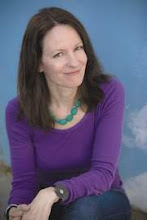Despite many stunning sentences, I didn't find "the transformative power of Enright's language keeps the story's freight from burdening the reader," as this reviewer wrote. This dark novel's protagonist, Veronica, is so full of self-pity and bitterness, it is hard to sympathize, much less find interest in her dilemma about a murky sexual abuse memory from childhood. No light refracted in this bitter ale of a story, and I couldn't help but think of Charles Baxter's dead-on essay, "Mistakes Were Made," from his collection Burning Down the House. In the essay, Baxter skewers Jane Smiley's A Thousand Acres, a "moody novel" which also features a "recovered memory scene."
Says Baxter:
The characters' emotions are thus ordained, and the narrator gathers around herself a cloak of unreliability as the novel goes on...the mood itself often seems impenetrable, because the characters, including the men, are not acting upon events in present narrative time but are reacting obscurely to harms done to them in the psychic past from unthinkable impulses that will go forever unexplained...[my emphasis]Among the accolades for this book, my own reaction comes closer to this reviewer's:
Hankering to read powerful, dark tales of rage and beauty? I recommend anything by Mary Gaitskill.Veronica is so self-pitying and self-absorbed that no clear detail about anyone in her life emerges from the endless me me me. Most of her siblings (there are 11 of them) are just names on the page, and even [her brother] Liam is close to a cipher.
Veronica, meanwhile, puts the saddest, ugliest spin she can on any subject that occurs to her — whether it's her grandmother Ada's "overused pubis" or her husband's erotic imaginings — only to back away after a page or two and concede she has no real information. Again and again she comes up with generalizations ("History is only biological — that's what I think") or summations of character ("For a woman like Ada, every choice is an error, as soon as it is made") that have nothing to support them.




















